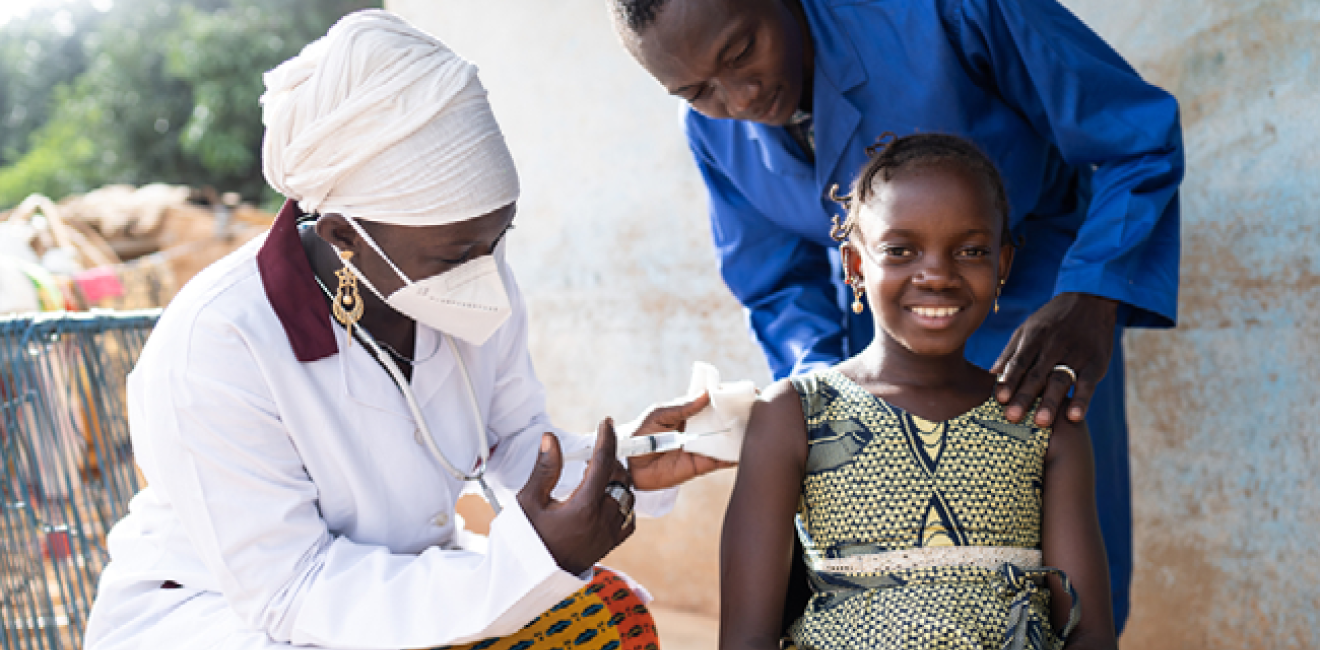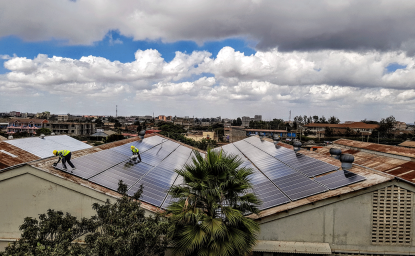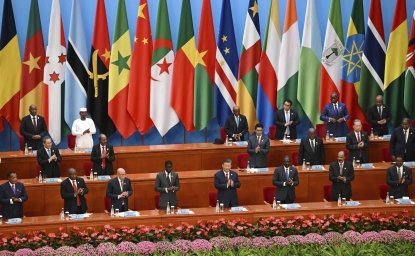
A blog of the Africa Program
The long fight against malaria has hit a turning point and a new sense of hope has arrived, as the World Health Organization approved the first malaria vaccine on October 6, 2021. Malaria is a vector-borne, life-threatening disease which occurs most commonly in tropical and subtropical areas in the world. These areas are prone to the spread of malaria due to an elevated number of mosquitos that carry the malaria disease, weather conditions that allow for transmission to occur year-round, and the low socio-economic stability of these countries that limit efforts to reduce the transmission.
In 2019, the estimated number of malaria-related deaths stood at 409,000 worldwide, including some 274,000 children under the age of five — who accounted for approximately 67 percent of the disease's victims. According to the World Health Organization (WHO), Africa carries a disproportionately high share of malaria's burden. In 2019, the region was home to 94% of malaria cases and deaths.
Young children, who have not developed immunity to malaria yet, and pregnant women, whose immunity has been decreased by pregnancy, are the population groups at the highest risk for malaria morbidity and mortality. Rural and poor people are also at risk because they are the least likely to have the means to prevent and treat malaria. While malaria is preventable and curable, and treatment is rapid, effective, and inexpensive, socio-economic instability has hindered efficient malaria control activities.
Sub-Saharan Africa, in particular, is most susceptible to malaria outbreaks due to a plethora of factors. Climate change and changes in land use are increasing the breeding sites of malaria-carrying mosquitos and further spreading transmission of the disease. Military conflicts also contribute to the spread of malaria by forcing people into new areas of exposure and limiting access to prevention and treatment. The movement of refugees has also allowed malaria to re-emerge in places where it was previously in control because of refugees' lack of immunity. Declining health services and greater drug resistance also contribute to increased transmission.
The anopheline mosquito, which carries the malaria disease, has increasingly become resistant to the insecticides used to control its spread while the parasite plasmodium has become resistant to the drugs used to treat the disease. The parasite Plasmodium falciparum, which is the most severe form of malaria and the cause of most cases in sub-Saharan Africa, is now resistant to the antimalarial drug, chloroquine. Lack of political will, inadequate local research efforts, and a shift in focus to combatting COVID-19 have also contributed to the persistence of malaria within the region.
Malaria has severely impacted economic development in many African countries with poverty being its most viable consequence. Not only does the disease take a toll in lives lost, it also contributes to income loss, with increases in medical costs and reduced economic output. Malaria prevention, care, and treatment is estimated to cost Africa $12 billion annually, reducing GDP growth per capita by 1.3% per year in African countries.
The approved vaccine RTS,S/AS01 (RTS,S), more commonly known as Mosquirix, was developed by British drug maker GlaxoSmithKline. Although Malaria vaccines have been in development since the 1960s, WHO's recommendation of Mosquirix was informed by the results of an ongoing WHO-coordinated pilot program in Ghana, Kenya, and Malawi that has reached more than 800,000 children since 2019.
Compared to other vaccinations, Mosquirix has only modest efficacy, preventing nearly 30% of severe malaria cases. Children under five will need to undergo a series of four injections to reach this efficacy rate. While the vaccine is not perfect, Dr. Teydros Adhanom Ghebreyesus, WHO Director General, views this long-awaited vaccine as a breakthrough for science that could save tens of thousands of young lives each year. One study suggests that this malaria vaccine could prevent the deaths of nearly 23,000 children a year — which could significantly reduce the mortality rate.
Evidently, the new malaria vaccine is projected to save lives, but governments should strive to attain more effective malaria preventatives, diagnostics, and treatment measures. Funding is an urgent priority and greater resources could lead to an increased efficiency, effective programming, and political will. Governments, the private sector, researchers, individuals, groups, and other stakeholders should act with a shared and focused goal to decrease malaria to a state where it is no longer a threat to the lives and wellbeing of African citizens. A strong collaboration backed by adequate political and financial support with the common objective to eliminate malaria in Africa and globally should be a top priority.
Jennyfer Jimenez is a Staff Intern (Director's Office) at The Wilson Center's Africa Program.
Photo Credit: Riccardo Mayer/Shutterstock.com
Author


Africa Program
The Africa Program works to address the most critical issues facing Africa and US-Africa relations, build mutually beneficial US-Africa relations, and enhance knowledge and understanding about Africa in the United States. The Program achieves its mission through in-depth research and analyses, public discussion, working groups, and briefings that bring together policymakers, practitioners, and subject matter experts to analyze and offer practical options for tackling key challenges in Africa and in US-Africa relations. Read more





